From then on, whenever Lincoln found a surplus in his bank balance, he set aside a certain portion for clothes, and once a month, he and Joshua ventured over to Kirkman's for some new sartorial wonder. A waistcoat with stripes. A coat of black bombazine. Nankeen pantaloons. White drill trousers. Embroidered shirts.
Lincoln always wanted Joshua to be in the room with him before he sported anything new in public. As a result, many weeks might go by before that article of clothing got its airing, and if it were inconspicuous enough -- say, a pair of wool socks, purchased at discount from Bell & Company -- the evening might end with nobody the wiser. But some part of the new Lincoln must have developed a craving for attention, for when no one else provided it, he would make a point of catching Joshua's glance and, with the most comically blank of faces, gesturing to the article in question. The immediate effect on Joshua was always a convulsion of laughter. The larger effect was something warmer and deeper -- and for a long time, quite mysterious, for he had never experienced it before. That sensation of being enrolled in a private alliance, concealed at its core.
Nobody else knows. That was the refrain that kept singing through his brain. Every day, the list of things that only he and Lincoln alone were privy to -- passing misadventures, comic leitmotifs -- grew ever larger, refused to be limited, and it seemed now to Joshua that the best reason to devote all their free hours to each other was to build upon that body of arcane knowledge -- to build it high, like some silo that only they could see.
They were now a tandem, and among Springfield hostesses, it was said that if you invited one, you must invite the other. And whenever they arrived at an event and stood shoulder to shoulder in the doorway, the shout that rose up was always on the order of "There they are!" or "They took their sweet time coming" or, more teasingly, "Who invited them, anyway?" Ned Baker took to calling them Damon and Pythias. No, said Arch Herndon, teasingly, they were more like Romulus and Remus (though they couldn't have been less twin-like). At table, they were routinely seated together. More than that, addressed together, interrogated together, sent out into the world together. If anything of note had taken place within the walls of Bell & Company, it was assumed that Lincoln would be the one to start telling and that Joshua would interrupt at regular intervals with corrections. If, by contrast, the tale centered on Lincoln, the process would go exactly in reverse.
joshua: There were six of us, I think, riding along this country road outside Chandlerville. Wild plums, crab-apple trees. . . .
lincoln: He's setting the scene.
joshua: Hardin was there and I can't remember, was Baker there?
lincoln: He was.
joshua: So we dismounted at a creek, and while the horses were drink- ing, we looked round and suddenly there were only four of us.
lincoln: Nothing gets past Speed.
joshua: We made a quick reconnaissance, and we realized that the miss- ing parties were Messieurs Hardin and Lincoln. Who were bringing up the rear. Well, before we could even sound the alarm, Hardin came trotting up. Alone. Come now, where's Lincoln? we asked. Oh, said Hardin, if I told you, you wouldn't believe me. So we pressed a little harder, and he said, Last I saw him, he was walking away with two wee birds in hand. Well, as you might expect, we were curious to know what Mr. Lincoln was doing with a pair of wee birds.
lincoln: You forgot to mention the windstorm. joshua: I was getting round to it.
lincoln: Now would be a good time to --
joshua: Very well. Just before we set out, there was a violent wind- storm, and these two young birds . . .
lincoln: Too young to fly.
joshua; Too young to fly . . . were blown out of their nest and left lying there by the side of the road. Of course, the rest of us rode right on past. It took the tenderhearted Mr. Lincoln to spy them there.
lincoln: And hear the mother bird's cry.
joshua: So what did he do? He gathered up these two wee birds and set off in search of their nest. Which obliged the rest of us to remain by that creek an entire hour, waiting for our companion here to redress this -- this crime against nature. And what did he say when at last he came riding up? Go ahead, tell them.
lincoln: I said if I'd left them there, I wouldn't have been able to sleep again.
joshua: Their cries would've been ringing in my ears, that's how he put it. lincoln: And, ladies and gentlemen, I would do the same again.
joshua: Yes, but he's left out his real offense. He hasn't yet billed the mother bird for his services. What kind of lawyer is he?
Even as he held up his end of the narrative, Joshua noted with some delight how attuned their listeners were to the contrapuntal rhythm -- atten- tion flowing easily from one man to the other, enjoyment mounting with each interchange. Without ever intending to, he and Lincoln had created a kind of parlor theater -- close enough, at any rate, to the playacting of the Illinois General Assembly that Lincoln began, for the first time, to relax in genteel company and to call upon the full arsenal of his rhetorical devices. One night, with a quiet swell of triumph, Joshua heard Mrs. Ridgely whispering to Mrs. Mather: "My dear, I had no notion Lincoln was so droll. I mean, that business about the preacher and the lizard "
Whenever the elements allowed, they took an evening walk. It was Joshua's favorite time to tour the city. The two men walked down Fifth Street, west on Monroe, up Fourth, west on Madison. On some nights, if the weather was fine, they'd turn their backs on the city altogether and travel north until the town melted away into a level plain. With only the moon or the stars for light, they'd pick their way along some narrow path until they reached the Northern Cross railbed. There wasn't a speck of rail to be found, and the locomotive was still a year or two away from reaching Springfield, but in Joshua's eyes, that elevation was luminous with the prospect of motion. Here the two men would stop, declining to go farther, and begin to speak of the places they'd traveled, and even after the talk tapered off, they would remain there in equable silence, neither in a hurry to return.
It was on one of these nights that Lincoln impulsively threw his arm around his friend. Held it there and then said, in a voice of rare warmth: "I do not lie, Speed. Meeting you was the greatest fortune that ever befell me." To Joshua, it was the most foreign of gestures. Somebody reaching for him -- and not in anger, as his father might have done. He had no answer for it, and it was nearly a mercy when, a second later, the hand pried itself free
and Lincoln said: "Shall we head back?"
Their bedtime rituals that night were the same as ever. Joshua, in a habit imposed upon him years earlier by his mother, gave his hair three quick brushes, and by the light of a single candle, they hastened to undress -- for the night was cold and the fire was out -- and throw on their nightshirts. Lincoln spent his usual hour reading and, with his usual care, slid himself under the goose-feather comforter. There followed the usual rearrangement of bodies, half-conscious, and then all was still.
"Lincoln," said Joshua.
From somewhere in the darkness: "Mm. "
"Did you mean what you said?"
"Uhh . . ." A stirring of sheet. "Did I . . . ? Sorry "
Joshua lay there for a while longer. "Never mind," he said.
He assumed it would die there. Never would he have expected Lincoln to turn round in the bed, to front him in the way he did.
"Did I mean what, Speed?"
Excerpted from Courting Mr. Lincoln by Louis Bayard. Reprinted courtesy of Algonquin Books.

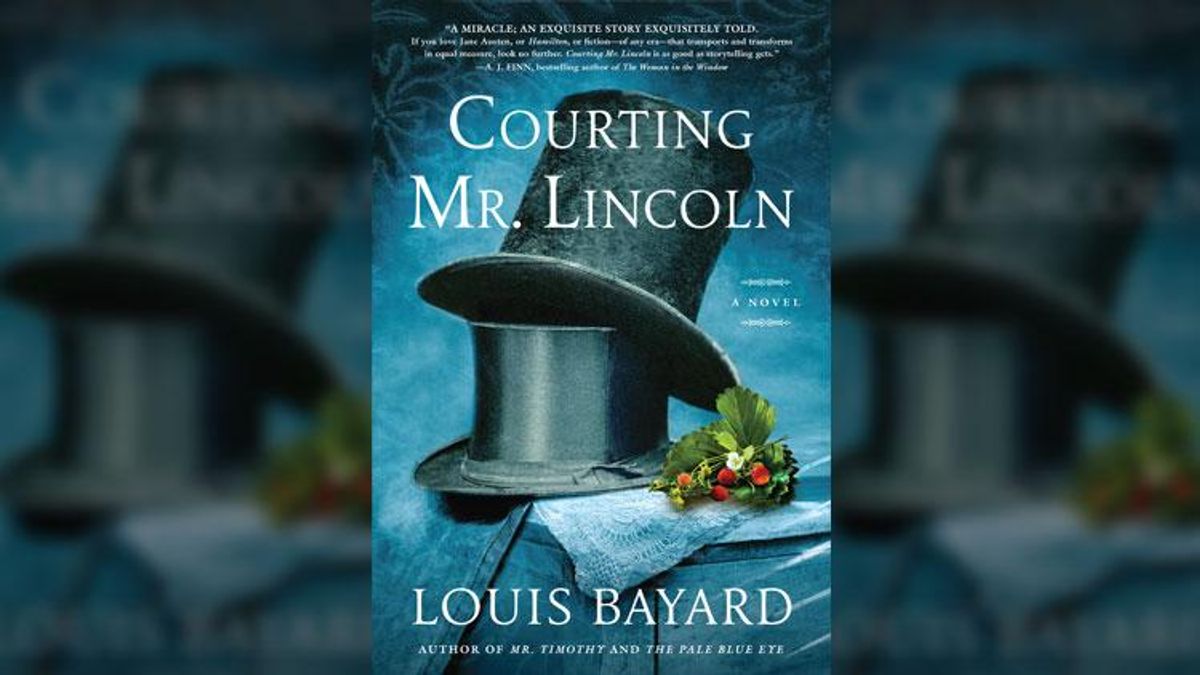




























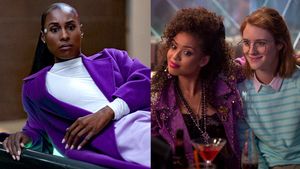


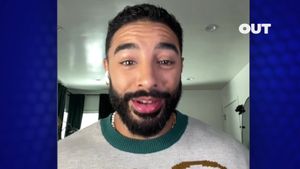




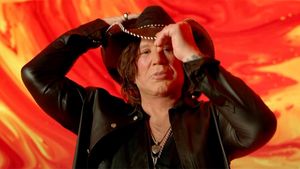







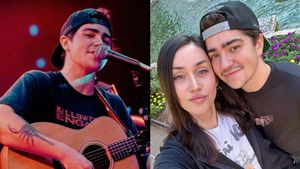


















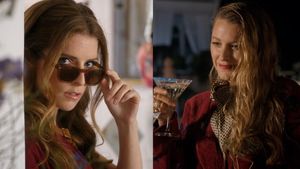





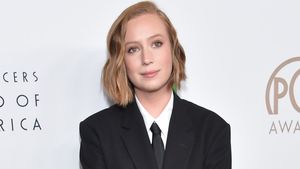







Fans thirsting over Chris Colfer's sexy new muscles for Coachella